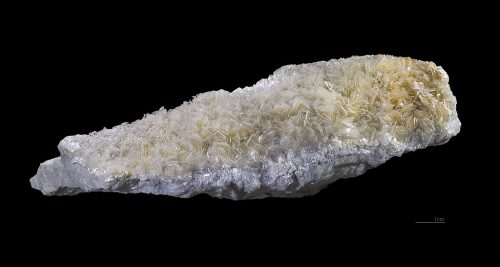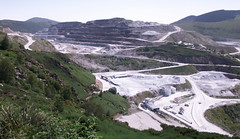
No hype, is Talc powder bad for me?
I know there are lots of articles out there and at times there seems to be a great deal of hype and blustering around talc powder, alarmist and extremist. I try to sift through it and present you with information so you can make your own decision.
Talc powder has been around and in use for a very long time and has been widely used for a very long time. It is found all around the globe in veins of deposits. It is a mineral that was formed when magmatic rock, rich in magnesium, experienced a hydrothermal reaction. When liquid rock meets super heated water and pressure? Transformation! Talc a very soft mineral. In fact, it is the softest measuring, only 1 on the mohs scale. You can flake it away with your fingernail; so, you can imagine, it doesn’t take much to mine and gather talc powder. However, there are some things to note here.
Purity
 Mineral deposits are rarely pure. There is usually some cross-contamination from other deposits and minerals seeping over. For example, many of the talc veins run very close to asbestos, a known carcinogen. Now, not all veins do and there is pure talc, you just need to trust that the suppliers have properly processed and tested the purity. Call me a cynic, but I think this might be problematic.
Mineral deposits are rarely pure. There is usually some cross-contamination from other deposits and minerals seeping over. For example, many of the talc veins run very close to asbestos, a known carcinogen. Now, not all veins do and there is pure talc, you just need to trust that the suppliers have properly processed and tested the purity. Call me a cynic, but I think this might be problematic.
Cancer link and Pulmonary Disease
In all fairness to talc, there is no conclusive evidence linking pure talc to cancer. Last time I checked the American Cancer Society page on talc, there were no conclusions on links to cancer when the talc did not have asbestos. OK, but you can make the leap: asbestos might be present if the talc was not tested properly.
Having said that, I will note one major US brand has been hit with several major lawsuits sighting a direct link to their powder (talc) and ovarian cancer. I have not read the cases all the way through but the company and their supplier were fined. This makes me think there must be something amiss. Like some testing was done wrong or ignored. They lost three major cases (and more are on the way) but recently won one so you be the judge. You can read the cases for yourself and let me know what you find. Seems to me that each time the winner declared the science was on their side!?
As far as lung disease, miners and millers are the most at risk because they can be exposed to trace amounts of carcinogens when they handle the material in its raw, unrefined state. Miners are also exposed to radon so it’s difficult to find a conclusive, direct link. Also, due to it’s ultra fine powder it is very easy to unintentionally inhale talc powder. Talc powder in the lungs can cause pulmonary disease. This is the key reason that most if not all doctors caution it’s use around infants.
Sustainability
Talc powder is a mineral that does have a finite supply. Any item that is mined or pumped from the earth is not sustainable, plain and simple. The geothermal reactions that created the deposits happened long before we showed up and they aren’t going to be repeated. Once it runs out, it is gone forever.
 Naturally designed for living organisms
Naturally designed for living organisms
I don’t know how else to say it: Our bodies are not designed to process talc powder. It is not a mineral that has any advantages to the human organism. It is not digestible or biodegradable so if it gets in, there is no way to convert talc powder into anything usable for the body. So if it cannot be converted what’s it going to do. Perhaps your body, with it’s natural defenders, may be able to flush it out somehow, but what if some gets stuck. On a molecular level it would be like inviting an invader into your home that just stays and festers…forever. You hope it never causes trouble, but there is always a chance.
So why use it when you can use plant powders to do the same thing? This is my biggest hang up about talc powder; it offers no additional value, it is not sustainable, it acts as a foreign invader if it ever gets inside the body. We know that plant starches can do the job of helping to keep us dry and cool almost as well. Our bodies know what to do with plant starches and we will either use it to our advantage, convert it to something we need, or purge it out. So why risk using talc powder? To save a few bucks?
What would you rather use?
For those of us at Tres Spa, we would much rather use a pure botanical solution. One that the body naturally knows what to do with.
